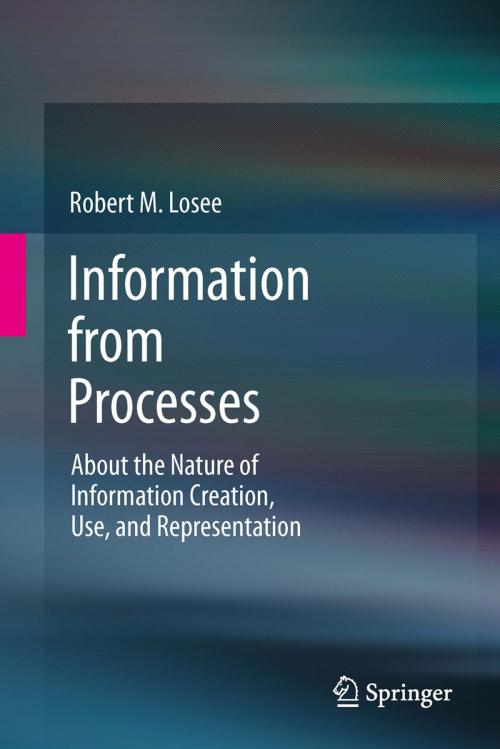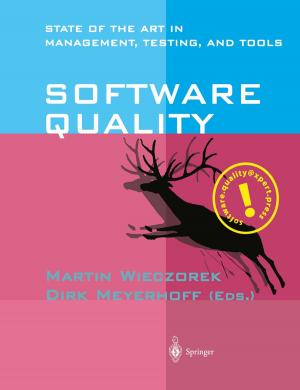Information from Processes
About the Nature of Information Creation, Use, and Representation
Nonfiction, Religion & Spirituality, Philosophy, Epistemology, Computers, General Computing, Internet| Author: | Robert M. Losee | ISBN: | 9783642311901 |
| Publisher: | Springer Berlin Heidelberg | Publication: | July 31, 2012 |
| Imprint: | Springer | Language: | English |
| Author: | Robert M. Losee |
| ISBN: | 9783642311901 |
| Publisher: | Springer Berlin Heidelberg |
| Publication: | July 31, 2012 |
| Imprint: | Springer |
| Language: | English |
Information is an important concept that is studied extensively across a range of disciplines, from the physical sciences to genetics to psychology to epistemology. Information continues to increase in importance, and the present age has been referred to as the “Information Age.”
One may understand information in a variety of ways. For some, information is found in facts that were previously unknown. For others, a fact must have some economic value to be considered information. Other people emphasize the movement through a communication channel from one location to another when describing information. In all of these instances, information is the set of characteristics of the output of a process. Yet Information has seldom been studied in a consistent way across different disciplines.
Information from Processes provides a discipline-independent and precise presentation of both information and computing processes. Information concepts and phenomena are examined in an effort to understand them, given a hierarchy of information processes, where one process uses others. Research about processes and computing is applied to answer the question of what information can and cannot be produced, and to determine the nature of this information (theoretical information science). The book also presents some of the basic processes that are used in specific domains (applied information science), such as those that generate information in areas like reasoning, the evolution of informative systems, cryptography, knowledge, natural language, and the economic value of information.
Written for researchers and graduate students in information science and related fields, Information from Processes details a unique information model independent from other concepts in computer or archival science, which is thus applicable to a wide range of domains. Combining theoretical and empirical methods as well as psychological, mathematical, philosophical, and economic techniques, Losee’s book delivers a solid basis and starting point for future discussions and research about the creation and use of information.
Information is an important concept that is studied extensively across a range of disciplines, from the physical sciences to genetics to psychology to epistemology. Information continues to increase in importance, and the present age has been referred to as the “Information Age.”
One may understand information in a variety of ways. For some, information is found in facts that were previously unknown. For others, a fact must have some economic value to be considered information. Other people emphasize the movement through a communication channel from one location to another when describing information. In all of these instances, information is the set of characteristics of the output of a process. Yet Information has seldom been studied in a consistent way across different disciplines.
Information from Processes provides a discipline-independent and precise presentation of both information and computing processes. Information concepts and phenomena are examined in an effort to understand them, given a hierarchy of information processes, where one process uses others. Research about processes and computing is applied to answer the question of what information can and cannot be produced, and to determine the nature of this information (theoretical information science). The book also presents some of the basic processes that are used in specific domains (applied information science), such as those that generate information in areas like reasoning, the evolution of informative systems, cryptography, knowledge, natural language, and the economic value of information.
Written for researchers and graduate students in information science and related fields, Information from Processes details a unique information model independent from other concepts in computer or archival science, which is thus applicable to a wide range of domains. Combining theoretical and empirical methods as well as psychological, mathematical, philosophical, and economic techniques, Losee’s book delivers a solid basis and starting point for future discussions and research about the creation and use of information.















